#Soviet history
Text
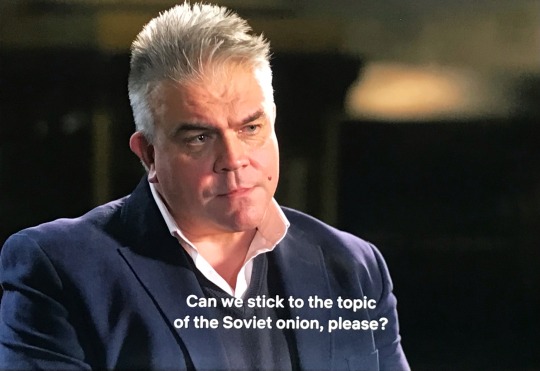
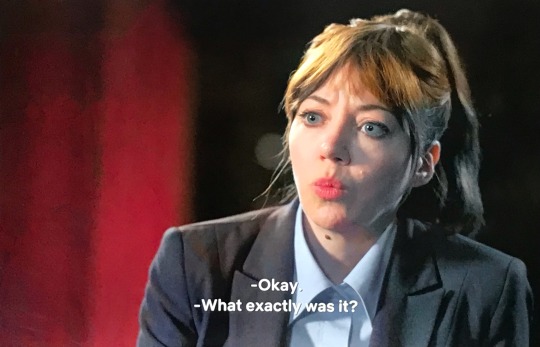
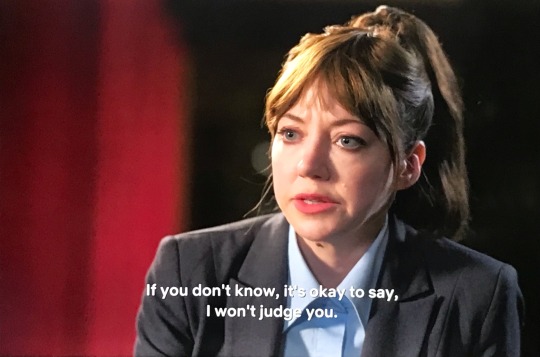
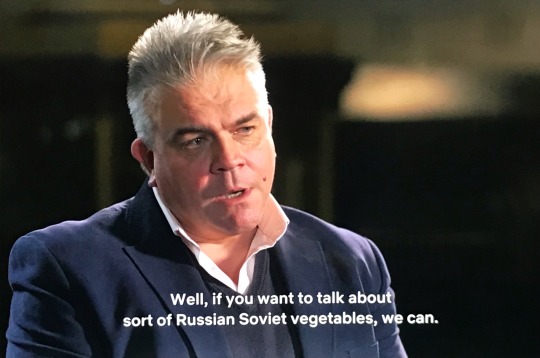
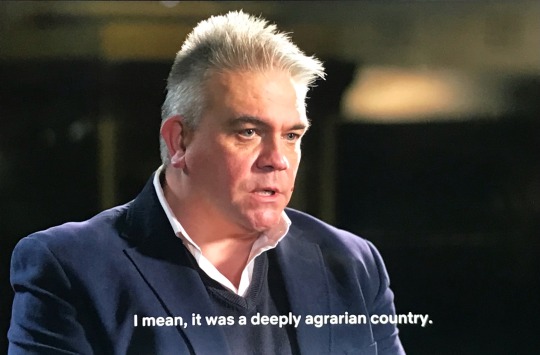
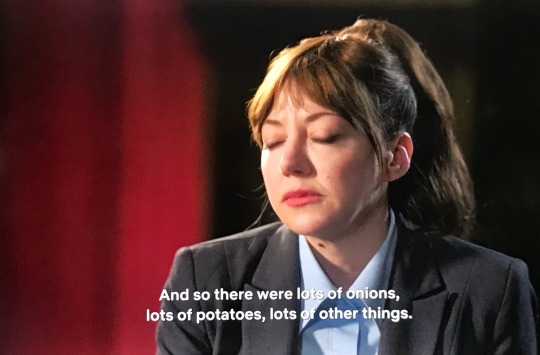
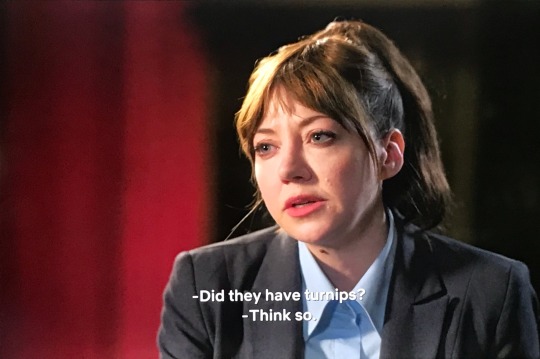
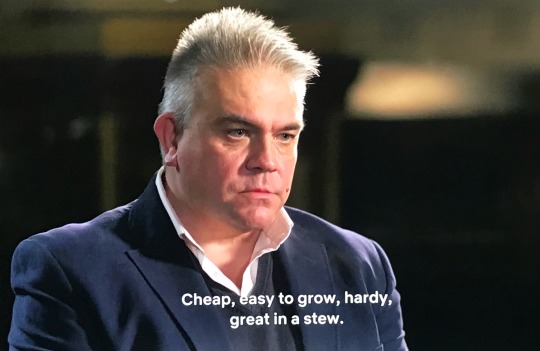
Can we just have a moment to appreciate this guy? All of Philomena Cunk’s experts are great but Ashley Jackson, professor of imperial and military history at London’s King’s College stands out.
When repeatedly asked about the “Soviet Onion,” he initially tries to correct her. She accuses him of mansplaining, so he eventually just plays along completely straight-faced.
“Well, if you want to talk about sort of Russian Soviet vegetables, we can. I mean, it was a deeply agrarian country, and so there were lots of onions, lots of potatoes, lots of other things.”
“Did they have turnips?”
“Think so. Cheap, easy to grow, hardy. Great in a stew.”
Just… “Great in a stew.” Man went from trying to correct her to just… listing the virtues of turnips. Class act.
#philomena cunk#cunk on earth#diane morgan#Ashley Jackson#military history#soviet history#vegetables
5K notes
·
View notes
Text
Dmitri Shostakovich at Sergei Prokofiev's funeral, 1953.

For context, Prokofiev and Stalin died on the same day- March 5, 1953. Because Stalin's funeral was such a major event in the Soviet Union, Prokofiev's was largely overlooked, despite the fact he was one of the leading Soviet composers of his day. Relatively few people attended his funeral, Shostakovich among them.
Shostakovich and Prokofiev were not particularly close, and had a thorny professional relationship- much of the correspondence between them that I've been able to find appears to be formal criticism of each other's works. As Prokofiev was from an older generation- he was born in 1891, while Shostakovich was born in 1906- they did not always see eye-to-eye musically; Shostakovich experimented with the avant-garde when possible, perhaps in part due to his musical maturation during the socially-liberal NEP era, while Prokofiev's style tended to be more conservative and neoclassical- picking up more influence from Imperial-age composers and fellow emigres to the west (he lived in France and the United States before returning to the Soviet Union in 1936). Their generational difference also partially accounted for how they responded to harsh government criticism- Shostakovich was impacted by the consequences of his 1936 denunciation all his life and, while he suffered greatly during his second denunciation in 1948, was able to develop public and private personas, in both the musical and ideological spheres, to preserve himself and his artistry. However devastating as it was for Shostakovich, the 1948 denunciations took a greater toll on many other composers, Prokofiev included. As Prokofiev did not believe he would be harshly denounced as Shostakovich had been in 1936, he was far less prepared for the censorship and attacks he faced in 1948. As a result of the denunciations, combined with his declining health, his artistic productivity decreased, and he largely regulated himself to writing basic ideological works towards the end of his life.
This is a letter Shostakovich wrote to Prokofiev on the subject of his Seventh (and last) Symphony:
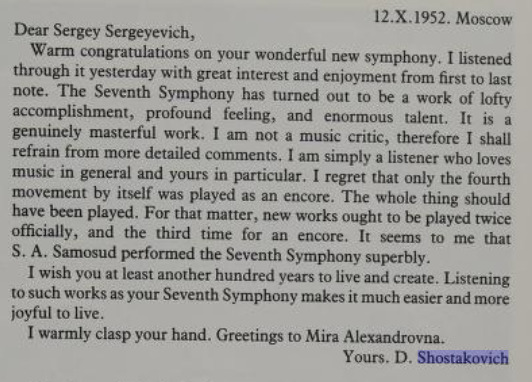
There's speculation as to whether or not Shostakovich was actually impressed by Prokofiev's Seventh Symphony. As Prokofiev was in decline at the time of writing it, the symphony has been criticized for being banal and not being particularly innovative; Rostropovich even claimed that Prokofiev added in its final flourish not for artistic purposes, but to have the piece nominated for a Stalin Prize, which would have meant money and a boost to his reputation after it suffered in 1948. (The Stalin Prize has its own complicated history in its role in Soviet music, and although it was the highest award a Soviet composer could earn, it could sometimes be awarded as a sort of backhanded punishment- an encouragement for composers to write the "right" sort of music, especially after they had been criticized for "formalism." Nonetheless, winning it after suffering a denunciation could mean financial and political security.) Did Shostakovich- who had often traded criticisms with Prokofiev over music- actually like this piece, or was this an effort to encourage a fellow artist to keep composing after suffering mental and physical ailments? This was a private letter and not a public statement, and Shostakovich was typically very straightforward about critiques, so if the entirely positive sentiment for the piece wasn't genuine (the only critique here is that Shostakovich says he wishes the entire symphony was encored!), the letter may have come from a place of concern.
Perhaps the most striking thing about this letter is the line, "I wish you another hundred years to live and create. Listening to such works as your Seventh Symphony makes it much easier and more joyful to live." Maybe by telling Prokofiev that he wished him another hundred years to live and create, Shostakovich was not simply praising the symphony, but encouraging Prokofiev- a composer whom he was often on icy terms with- that he needed to keep living and creating, during a time when it was becoming more and more difficult for him to do so.
#shostakovich#dmitri shostakovich#prokofiev#sergei prokofiev#music history#composers#classical composers#history#soviet history#classical music#music#cw dead body
221 notes
·
View notes
Text
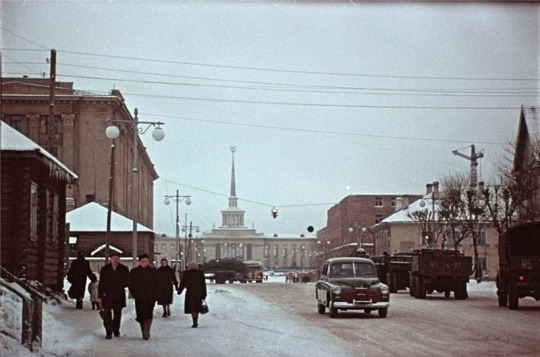
Petrozavodsk, Karelia, 1950s | Ph: Semyon Fridlyand
80 notes
·
View notes
Text

Not long ago I finished reading @TimothyDSnyder's book
"Bloodlands. Europe between Hitler and Stalin".
I wanted to share some quotes from the chapter on the Holodomor that struck me personally the most. It is difficult to imagine what was happening then. A small but heavy thread:
The peasants who were slowly dying of starvation were believed to be saboteurs who were actually playing into the hands of the capitalist powers who wanted to discredit the Soviet Union. Hunger is resistance, and resistance is a sign of the imminent victory of socialism.
Forced to pass off their swollen bellies as a manifestation of political opposition, they came to the conclusion that the saboteurs hated socialism so much that they deliberately brought their families to starvation.
On 22 January 1933, Balytsky warned Moscow that peasants were fleeing the republic, and Stalin and Molotov ordered law enforcement agencies to stop the flow of people. The next day, the sale of long-distance railway tickets to peasants was banned.
The Ukrainian musician Yosyp Panasenko was sent with a group of bandura players to the countryside to bring culture to the starving peasants. Having taken away the last piece of bread from the peasants, the authorities had a grotesque intention to raise the mood and spirit of the deathly hungry people. The musicians found completely empty villages.
Children born in the Soviet Union in the late 1920s and early 1930s found themselves in a world of death, surrounded by helpless parents and a hostile government. The average life expectancy for a boy born in 1933 was seven years.
One father in the Vinnytsia region came to the cemetery to bury two of his children, and when he returned, he saw that another child had died. Some parents locked their children in the house to save them from cannibals.
Parents gave their children to distant relatives or strangers, left them at railway stations. Desperate peasants who held their babies through the windows of the wagons did not necessarily beg for bread: very often they wanted to give their children away, to strangers who lived in cities and did not suffer from hunger.
Countless parents killed and ate their own children and then died of hunger anyway. One mother boiled her son for food for herself and her daughter. A six-year-old girl rescued by relatives last saw her father sharpening a knife to stab her.
The children's stomachs were swollen, their whole bodies were covered in wounds, scabs, and abscesses. We took them, laid them on the sheets, and they were moaning. One day, the children suddenly stopped talking, and we looked at them and saw that they were eating the youngest one, Petrus. They were pulling off his scabs and eating them. And Petrus was doing the same thing - pulling off his scabs and eating them, eating as much as he could. Other children were sucking blood from their own wounds. We pulled the children away from this activity and cried.
There came a time when there was virtually no grain left in Ukraine, and human meat was the only type of meat.
One Komsomol member in the Kharkiv region reported to his superiors that he could only meet the meat supply plan at the expense of human beings.
More than one Ukrainian child has told a brother or sister: "Mum said we should eat her if she dies". This tragic solution was found by love and care
112 notes
·
View notes
Text
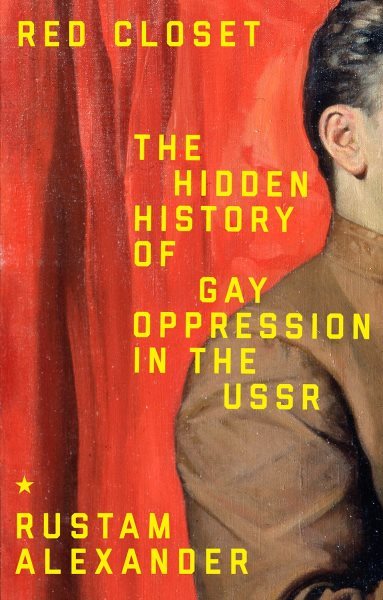
"At a time when President Putin’s regime is viciously repressing Russia’s LGBTQ community and criminalizing anyone who speaks up about lesbian, gay, bisexual, and trans lives, the appearance of this book is an important act of resistance. Red Closet brings to life stories of gay oppression in the Soviet Union and traces some of the roots of contemporary Russia’s homophobia."
98 notes
·
View notes
Text
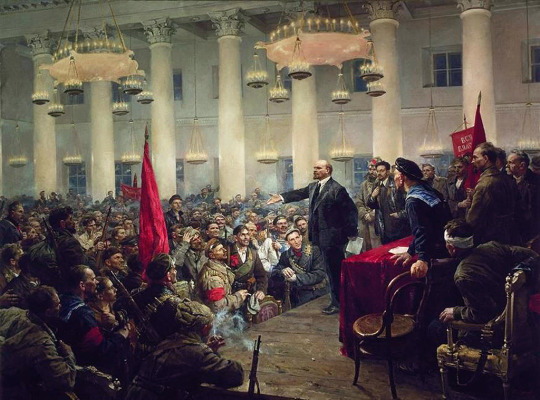
Valentin Serov | Lenin proclaims the victory of the revolution at the Second All-Russian Congress of Soviets.
#Valentin Serov#Russian Art#Vladimir Lenin#Lenin#Russian Revolution#the russian revolution#soviet history#Art
78 notes
·
View notes
Text
You guys are really going to Jesus when you want 'sacrificed for humanity' imagery when Laika is right there?
#196#my thougts#shitpost#laika the space dog#outer space#laika#anti christianity#ussr#soviet history#history#russian history#soviet union#space travel
47 notes
·
View notes
Text
A few more photos of actual grocery stores in the Soviet Union during Socialism:
As one can quickly see, there were neither breadlines, nor mass rationing in normal times.

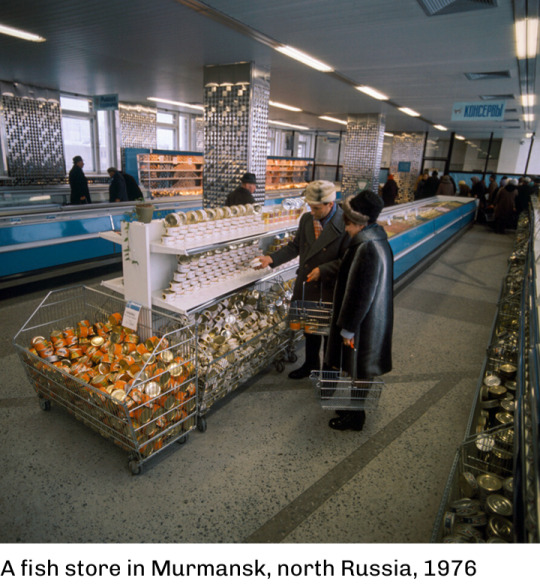

However, once Capitalism began to be re-introduced in 1985, the Soviet system quickly unraveled, leading to the breadlines famous in photos like this one from 1988:
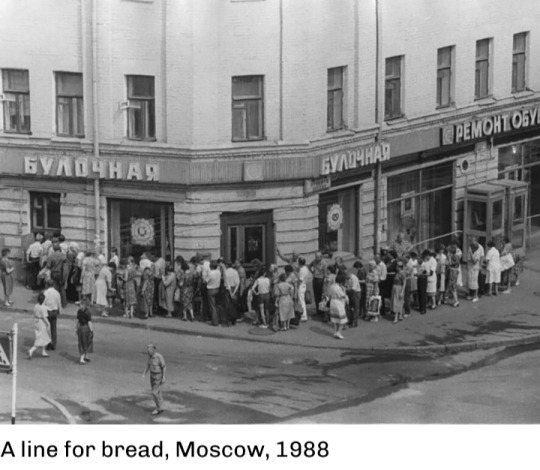
#ussr#ussr history#grocery shopping in the ussr#soviet breadlines#socialism#socialist politics#marxism leninism#communism#communist#socialist#marxist leninist#marxism#progressive politics#soviet union#soviet history
212 notes
·
View notes
Text
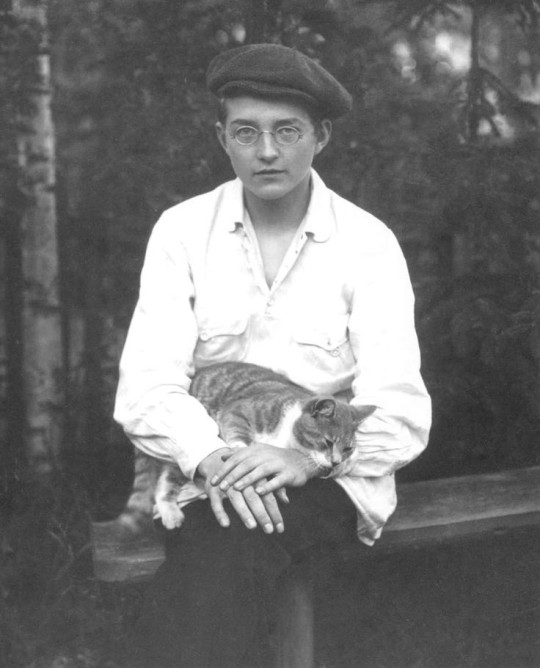
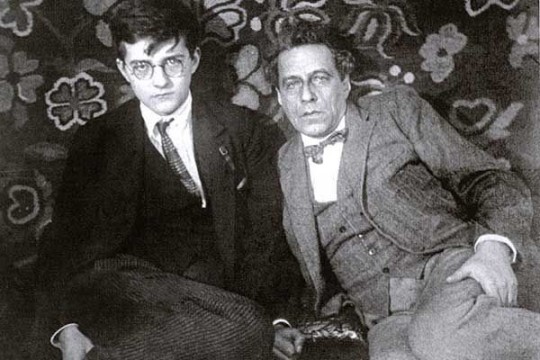
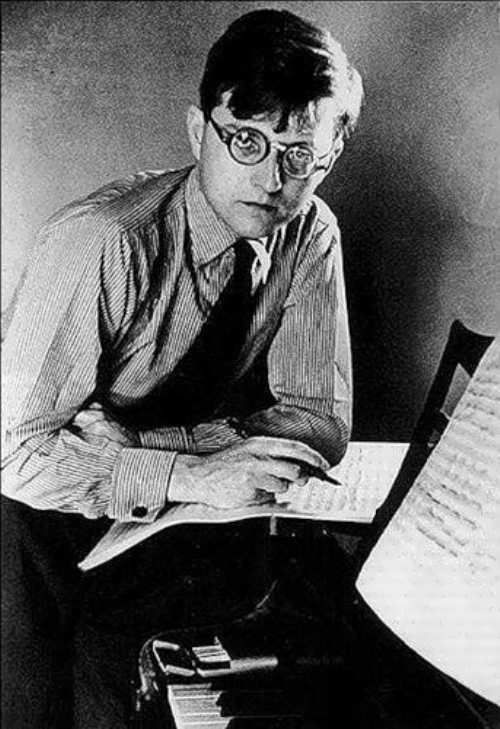
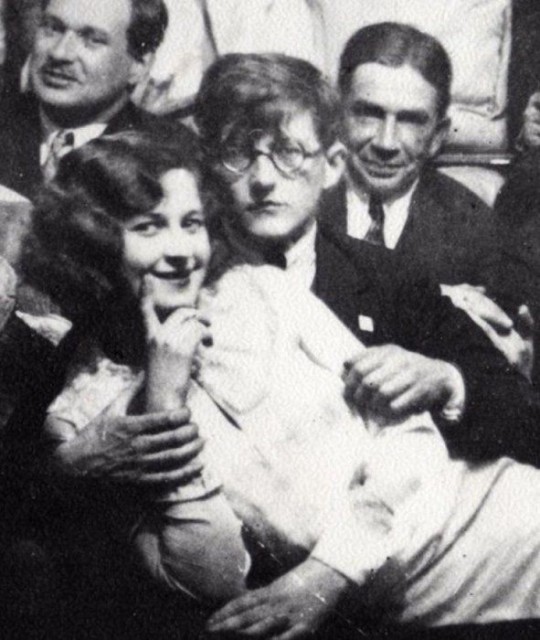
Happy shostakovich swag winter 🙏🙏
#classical music#opera#ballet#dmitri shostakovich#Shostakovich#russian history#soviet history#vintage photography#vintage fashion#vintage photo#vintage style#1930s#30s fashion
41 notes
·
View notes
Note
You’re the second person I’ve seen reference the music of Swan Lake when talking about the potential fighting between Wagner and the Russian military proper. What is that about?
I encourage your effort to inform yourself, which is why I'll note that this is a question easily answered with a 10-second Google search. For example, if you search "swan lake russia coup" on Google right now, this is what pops up:

This first result is yesterday's article from Business Insider, explaining the significance of "Swan Lake" being played on Russian state TV during moments of domestic political turmoil (the last time being during the attempted coup against Mikhail Gorbachev in 1991). Note that Swan Lake is not actually being played on TV during the attempted coup of 2023, as far as we know, but that is what this is referencing.
If you're then interested in learning more about what the last Russian coup attempt involved, you could go to Wikipedia:
And hey! Now you're on your way.
This also goes for the people reblogging my initial post (from last night) with some variant of "there's no evidence for this!!!" or "I hope this is true but I don't think/know if it is." First of all, I literally said in my post that the only evidence for it at the time was what Prigozhin was saying. As I went to bed, the first videos were starting to appear, but there wasn't much confirmation or external verification.
Now there is much more photo and video evidence, providing an independently verifiable route for the Wagner mercenaries from Rostov, to Voronezh, to Lipetsk, to (evidently) Moscow. We don't know exactly what's going on or how it will end, and it's always a good idea to question everything that comes out of Russia, as their official government channels/power structure lies about everything all the time. However, if you're interested in reviewing the evidence for yourself or making a determination as to what has been verified, there are options! For example, here is the Guardian's liveblog:
Basically: not everything is a "gotcha" where Superior Internet Users need to find some way to prove that I'm actively lying to them, and you don't need to fall back on "learned helplessness" when hearing things on social media and wanting to find some way to externally verify them through other news sites. Obviously it can be tricky, and I stress again, nobody knows for sure what's going on. But something definitely is going on, this has now been confirmed by a number of external video/photo/government/other entities both outside and inside Russia, and we will have to wait like everyone else to see what happens next.
77 notes
·
View notes
Photo

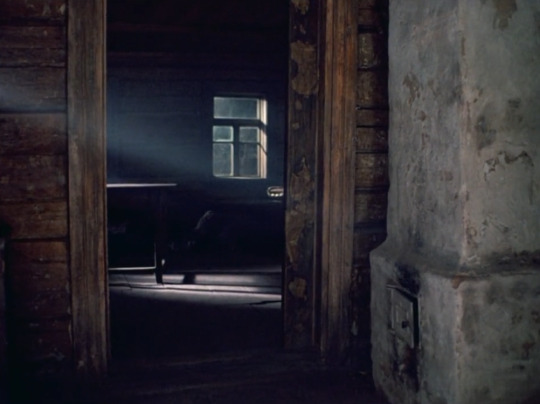
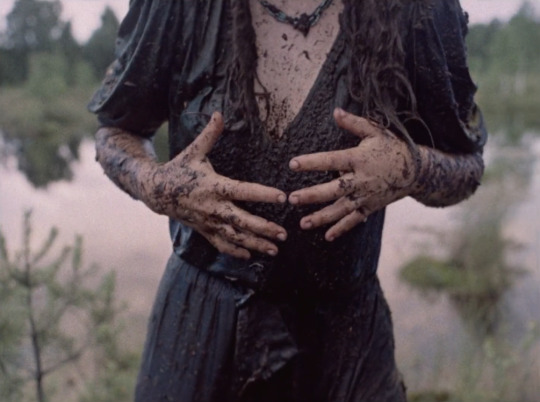

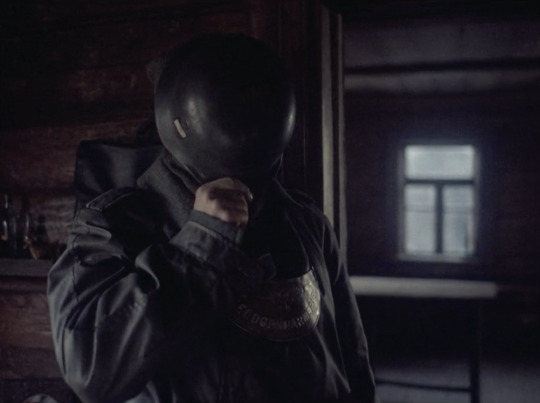

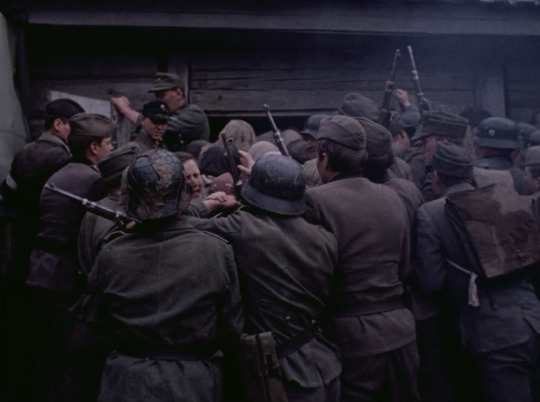


Come and See (1985) dir. Elem Klimov
#come and see#Иди и смотри#idi i smotri#Ідзі і глядзі#idzi i hliadzi#elem klimov#aleksei kravchenko#olga mironova#antiwar#war movies#war films#war history#soviet#soviet union#soviet history#ww2#wwii#ww2 movies#ww2 films#wwii movies#wwii films#screencaps#my caps#caps#russian movies#russian films#russian cinema#soviet movies#come and see 1985
676 notes
·
View notes
Text
Charcoal practice sketch of Soviet poet Anna Akhmatova

27 notes
·
View notes
Text
okay not enough of you classical music people know about the dsch journal and that is a CRIME
so, the dsch journal is a volunteer-run journal dedicated entirely to the life and works of dmitri shostakovich. it’s been running since the 90s and publishes two journals per year, which are filled with historical interviews and letters, musical reviews and analyses, opinion pieces from fans and listeners, and updates from the world of shostakovich research on new projects and discoveries to help us better understand one of the most enigmatic- and yet, one of the most famous- composers of the 20th century. their website contains some sample articles from over the years, which often have exclusive information that can be hard to find in biographies and other publications, like interviews from shostakovich’s close friends and family. anyone from anywhere in the world can apply to submit their work to the journal, which is how I got my start with them. they also have an instagram and facebook, where they post lots of neat shostakovich photos, so you should check those out!
I’m now a volunteer writer, editor, and researcher with the dsch journal, and the opportunity has just been amazing. in the upcoming issue, I have three articles- two obituaries and a news piece on a ten-volume (!!) chronicle being released over the course of this decade documenting shostakovich’s life in intense detail, which I was SO excited to read about. I’ve also had a chance to proofread some interviews from his visit to america in 1973, which contain some fascinating information on his artistic process.
also I just gotta point out the covers of the print journals, because they are GORGEOUS. here are some of my favorites-
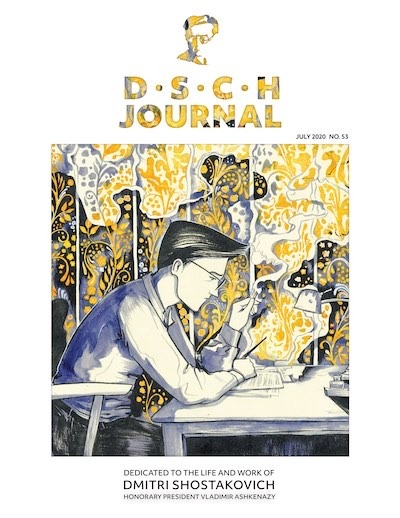

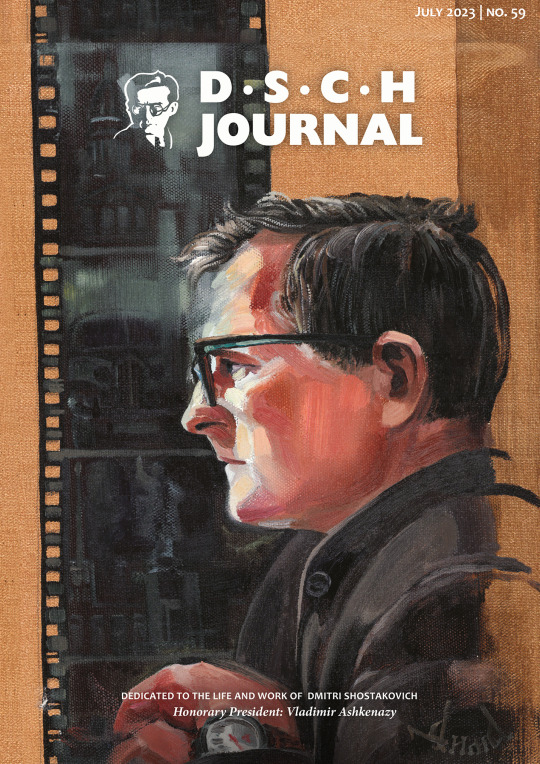
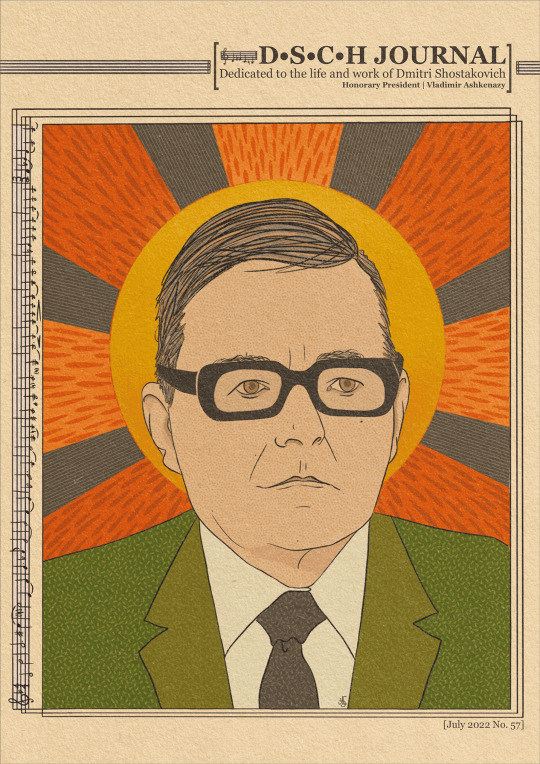
just !! look at them!!
#shostakovich#dmitri shostakovich#dsch journal#classical music#music history#soviet history#classical composer
58 notes
·
View notes
Text
This Thanksgiving I am grateful for… the November 23, 1917 decree by the Bolshevik government in Russia that abolished all legal class privileges and noble ranks :)
#thanksgiving#history#Soviet history#Russian history#Russia#Soviet#Soviet union#socialism#communism#marxism#Marxist-Leninism
27 notes
·
View notes
Text
It would be intentionally dishonest to say that the Chornobyl Disaster of 1986 was an accident, as official party line stated. According to the nuclear scientists who analyzed the event, not only was it inevitable, but "it was just a matter of time and which power unit that would not withstand the first". The problems were present on every single level - starting from the materials used for the plant, and ending with the work protocols.
The higher-ups at Moscow not only knew that the Chornobyl Nuclear Plant was one of the most dangerous NP in ussr, and that "the radioactive danger of a potential disaster is 60 times than that of Hirosima and Nagasaki" - according to the results of the official KGB investigation; at the moment of the disaster the project managers had reports of at least 29 emergency shutdowns, 9 accidents and 68 key equipment failures that had already happened on the Chornobyl NP. The real number could be much higher but is currently unknown due to many KGB archives remaining classified.
For example:
On September th 9th 1982 at 18:18 during a trial run of the reactor of the first power unit there was a significant release of radioactive substances into the environment. The total activity of beta-emitting radionuclides exceeded natural levels by dozens of times, and in the area of Chystohalivka village, located 5 kilometres from the Chornobyl power plant, the figure was exceeded by hundreds of times. The investigation team found about 20 gross violations in the operation of the power unit. Instead of following the protocol of alerting the civillians and declaring the village a "temporarily contaminated territory", KGB implemented measures to hide the fact of an accident ever happening.
Every report of the KGB investagative teams that we have access to ended the same: taking measures to conceal the very fact of the accident occurence. It came to the absurd situations when the workers were unaware of the fact that the previous shift's team had encountered an emergency situation.
------
Source: The KGB dossier on Chornobyl - from construction to accident
236 notes
·
View notes
Text
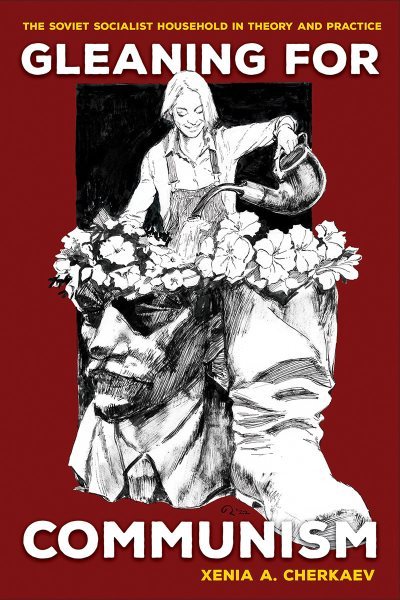
"From the moral economy to communism, from socialism to the household, from private property to the commons, Xenia Cherkaev brilliantly draws on law, theory, movies, political speeches, neighborly anecdote to tell how in the largest country in the world, state, society, and folks she just met kept body and soul together."
23 notes
·
View notes